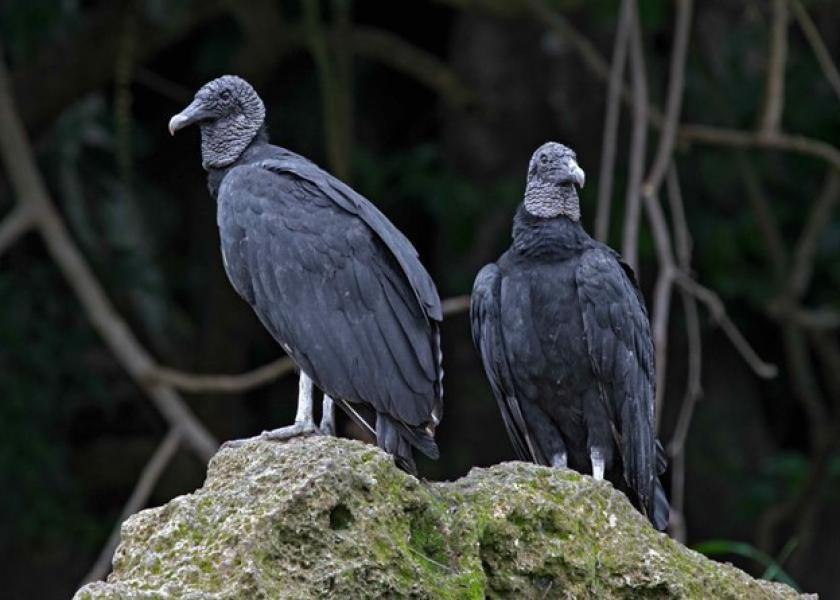Ranchers Seek Remedy To Black Vultures In S.C.

South Carolina’s Republican congressional delegation asked the Department of Fish and Wildlife to authorize a depredation order that allows black vultures to be killed under certain circumstances.
“Livestock producers in this great state are facing a frustrating issue of predatory vultures, and government should not stand in the way of them protecting their livestock and ultimately, their livelihood,” Rep. Ralph Norman said in a media advisory provided by the Farm Bureau. “I trust USFWS [Fish and Wildlife] will do the right thing and grant a depredation order for this situation in South Carolina.”
The Morning News in Florence, S.C., reports that Sens. Lindsey Graham and Tim Scott and Reps. Tom Rice, Nancy Mace, Joe Wilson, Jeff Duncan and William Timmons signed onto the letter from Norman.
Black vultures swarm a young calf – calves are not afraid of vultures during their first three weeks of life – and then attack its eyes or tongue in order to send the animal into shock and ultimately kill it so they can eat it. Black vultures can also injure a calf so severely that it has to be put down.
At present, cattle ranchers can’t legally protect their calves. In 1918, the United States enacted the Migratory Birds Treaty Act, making it illegal to kill, take or possess a black vulture under penalty of a $15,000 fine and jail time of up to six months.
Lee Van Vlake, the livestock agent for northeastern South Carolina at the Clemson Extension office, told The Morning News he didn’t want to use the word “widespread” to describe the incidence of black vulture attacks, but noted there had been several instance.
“We have had several reports from different farmers from different locations of black vulture damage,” Van Vlake said. He estimated the loss of a calf would easily be $500.
The South Carolina Farm Bureau estimates that cattle produce $133 million of economic activity in the Palmetto State each year.
“You got to go through U.S. Fish and Wildlife or you can call the S.C. Department of Natural Resources,” Van Vlake said. “They have been helpful. There have been occasions where I think in other parts of the state where I think they’ve come out and tried to help the farmer from an alleviation standpoint. But from the farmer’s perspective, there’s not really anything they can do other than try to go through Fish and Wildlife and try to get a permit, which historically that has taken weeks.”
The Living and the Dead: Black Vultures Expand, Farmers Pay Cost







